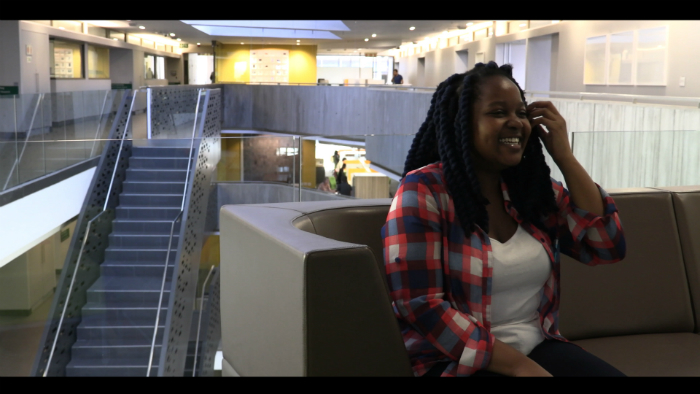Students tackle deferred exams
09 February 2017 | Story Chido Mbambe. Video Saadiq Behardien.
Four weeks of teaching at UCT were lost due to protest activity and shutdowns on campuses nationwide last year. UCT students who felt unprepared to write their exams in November, had the option to defer either individual exams or their whole exam block to January this year. Some were also offered a mini-semester of teaching to complete the 2016 academic programme.
The majority of students wrote their exams at the end of last year due to the logistical and financial challenges involved in organising accommodation and travel for the deferred exam block. And some students were required to write due to the stipulations of their academic funding.
Michaela Grobbelaar, a third-year psychology and religious studies student, said, “We know people who have been on bursaries and had an intense amount of pressure to have ... written them then because they're going on to do jobs.”
But many students felt too pressed for time to take on all of their exams at the end of last year. For many, settling down and studying after such a prolonged period of unrest has been incredibly tough.
Matthew Mashiane, a third-year electrical engineering student, said, “I really appreciate that UCT gave us the option. Our friends at Tuks were forced to write amid all that grey [of not knowing] and you could see they were not happy.”
Mini-semester
Additional face-to-face teaching and practicals were arranged by the faculties of Health Sciences and Engineering and the Built Environment in order to cover the second semester properly. These mini-semesters in January allowed students to complete their courses, particularly the practical aspects that couldn't be covered otherwise.
Asking staff and students to give up their holidays and return to classes early was a big request, but everybody who was affected committed themselves to making the mini-semester a success. Despite the sacrifices involved, it turned out to be a positive experience for all.
Professor Jenni Case, from the Department of Chemical Engineering, lectured during the mini-semester. She said that from day one all the students attended every lecture. They were enthusiastic and engaged in the classes. She said that walking through the New Engineering Building, you could feel the buzz in the foyer area where students were working together on various projects.
Speaking to students who attended the mini-semester, it seems that their sentiments were the same. They found the sessions very helpful and felt that they were much better prepared for the deferred exams as a result of the additional learning time.
Tondani Nevhutalu, a third-year civil engineering student, said, “We got back to learning and studying and felt we gained a study advantage. We were back in study mode and were ready for the deferred exams.”
She added, “Everyone was very supportive. We could engage with our lecturers and there was a comradely spirit among the students. It was great to get back and see all my friends.”
Students who chose to defer their November exams speak about their reasons for deferring and how they experienced the exams and the mini-semester.
 This work is licensed under a Creative Commons Attribution-NoDerivatives 4.0 International License.
This work is licensed under a Creative Commons Attribution-NoDerivatives 4.0 International License.
Please view the republishing articles page for more information.










